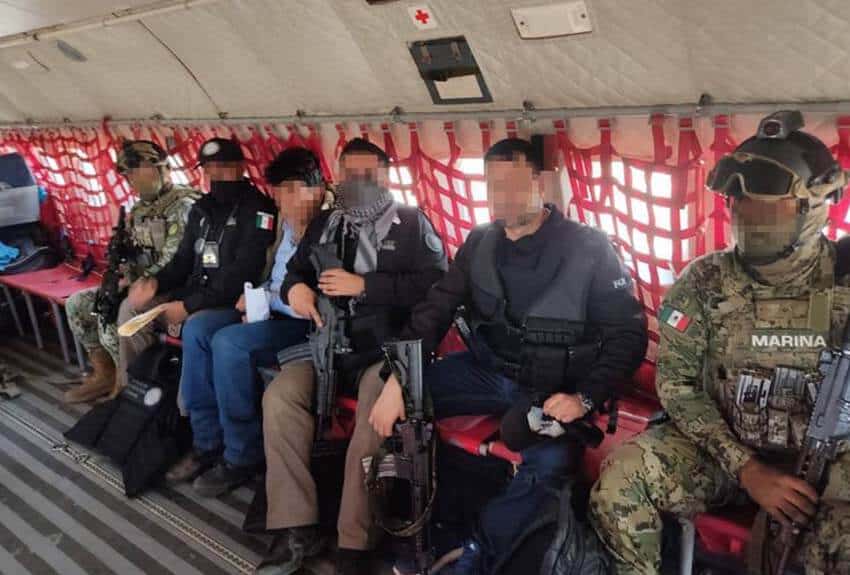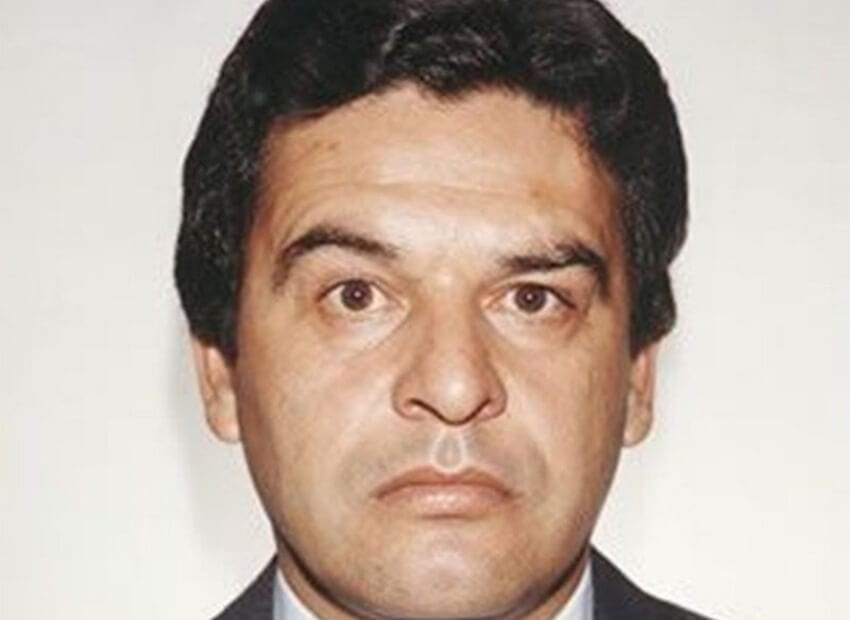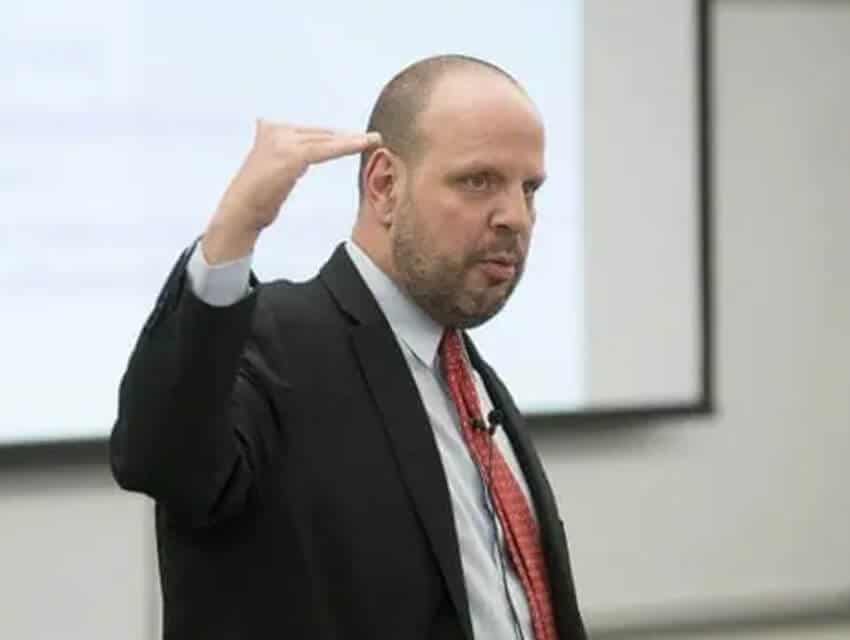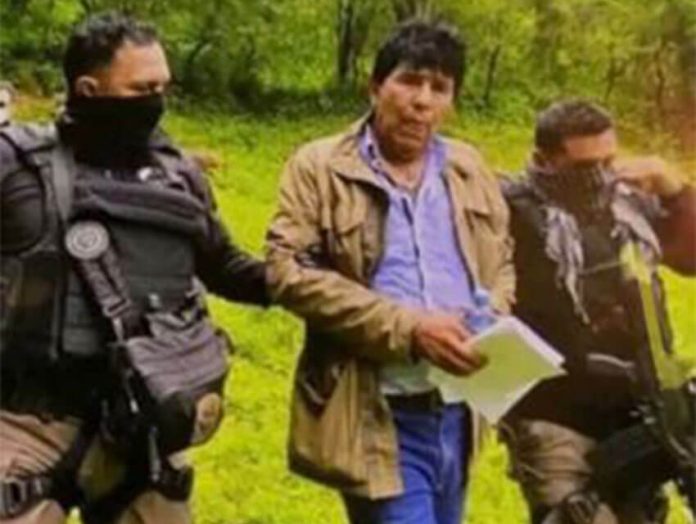The arrest last Friday of notorious drug lord Rafael Caro Quintero was the product of talks three days earlier between President López Obrador and United States President Joe Biden, according to a security analyst and former federal official.
Samuel González, founder of the organized crime unit in the federal Attorney General’s Office, told the news agency Associated Press (AP) that Caro Quintero’s capture was “without doubt” the fruit of negotiations last Tuesday in Washington. “The Americans never stopped pressing for his arrest,” he added.
Caro Quintero, founder of the now-defunct Guadalajara Cartel, has long been wanted in the United States for the 1985 murder of Drug Enforcement Administration (DEA) agent Enrique “Kiki” Camarena. He was convicted of that crime the same year and served 28 years in a Mexican prison before his 40-year sentence was cut short in 2013. A judge ruled that he was improperly tried in a federal court when the case should have been heard at the state level and he was released. The 69-year-old is now set to be extradited to the United States.
González told AP that his capture was unlikely to have a major effect on the organized crime landscape in Mexico because Caro Quintero – who has allegedly led the Caborca Cartel in recent years – did not wield the same level of power he did in the late 1970s and ’80s, when he was a major supplier of drugs to the United States.

He also said that the arrest demonstrates that “there is no protection of capos” by the government led by López Obrador, even though the president has not prioritized the detention of drug lords.
In an interview with AP, Guanajuato-based security analyst David Saucedo noted that cooperation between the DEA and the Mexican navy resulted in high-profile captures of wanted criminals during previous governments. However, such arrests haven’t occurred since López Obrador took office in late 2018, he said.
In fact, the federal government last year disbanded a United States-trained elite anti-narcotics unit that collaborated with the DEA for almost 25 years – the president said it was infiltrated by organized crime – and the U.S. anti-narcotics agency was effectively forced to withdraw its Mexico-based aircraft after authorities rescinded its parking spot at Toluca airport in México state.
Saucedo suggested that López Obrador and Biden last week reached an agreement for Mexican authorities to resume the extradition of criminals who are wanted north of the border.

“It seems to me that in the private talks between President Joe Biden and Andrés Manuel [López Obrador], they surely agreed to turning over high-profile drug traffickers again, which had been suspended,” he said. “Narcos are being captured again, and I believe that, clearly, it was what was in fact needed,” Saucedo added.
United States Ambassador Ken Salazar lauded the navy for the arrest of Caro Quintero and expressed regret for the deaths of 14 marines, who died in a helicopter accident after supporting the capture mission.
“For clarification, no United States personnel participated in the tactical operation that resulted in Caro Quintero’s arrest: the apprehension of Caro Quintero was exclusively conducted by the Mexican government,” he said in a statement.
While Salazar stressed that no U.S. agents were on the ground when Caro Quintero was taken into custody, DEA administrator Anne Milgram told employees at the agency she leads that “our incredible … team in Mexico worked in partnership with Mexican authorities to capture and arrest” the drug lord, for whom U.S. authorities had offered a US $20 million reward.
U.S. Ambassador to Mexico Ken Salazar expressed satisfaction at Caro Quintero’s arrest.Justice has no expiration date. Thank you to our Mexican partners for capturing Rafael Caro Quintero, who for years terrorized Mexican citizens and is implicated in the kidnapping, torture, and murder of DEA agent Kiki Camarena. #SeguridadCompartida https://t.co/Mv0Caqc8id
— Embajador Ken Salazar (@USAmbMex) July 16, 2022
In a message issued late Friday, Milgram told DEA employees that the arrest is “the result of years of your blood, sweat, and tears.”
Writing in the El Universal newspaper, Alejandro Hope, another security analyst, supported that view. “… An operation of this nature is unthinkable without the technical resources and the network of informants of United States agencies, particularly the DEA,” he said.
“… Beyond the friction and disagreement that might exist in … the bilateral relation, a fluid interaction between Mexican departments and the United States intelligence community persists at the operational level. That doesn’t detract from what the navy achieved but provides context,” Hope wrote.
He described the capture of Caro Quintana as an operation with an “extremely high degree of difficulty” and asserted that its successful execution showed that Mexican security forces, particularly the navy, “have maintained their intelligence and operation capacities.”

Hope also said that the capture of the capo showed that the federal government “never abandoned the strategy of beheading criminal groups,” despite López Obrador’s repeated affirmations that detaining drug lords isn’t a priority.
“The arrest of someone like Caro Quintero involves months or years of monitoring and planning. It also requires authorization at the highest level of responsibility. In other words, the president endorsed in private what he condemned in public,” he wrote.
Given that “we now know that the decapitation of criminal groups continues to be a strategy that is in full force,” Hope added, “can we now stop pretending that the [security] policy of this government is significantly different from that of the two previous ones?”
The security analyst said that Caro Quintero was no longer a major player in terms of drug trafficking or the generation of violence but nevertheless became a priority target once again “because that’s what United States anti-narcotics agents wanted.”
“Is that in Mexico’s best interest? I don’t think so,” Hope wrote, implying that authorities would be better served by directing their resources at combatting more powerful criminals and cartels, such as the Jalisco New Generation Cartel and the Sinaloa Cartel.
He predicted that Caro Quintero will be extradited as soon as possible given that keeping him in Mexico comes with the risk of escape and “legal trickery” as well as “suspicions of complicity [with authorities] and enormous pressure from the United States.”
In conclusion, Hope stressed that the arrest of the former Guadalajara Cartel leader – or any other individual drug lord – wouldn’t have any impact on the drug market in Mexico, which sends large quantities of narcotics across the northern border to the world’s largest narcotics consumer. “At this point in time, that’s not up for debate,” he wrote.
With reports from AP
